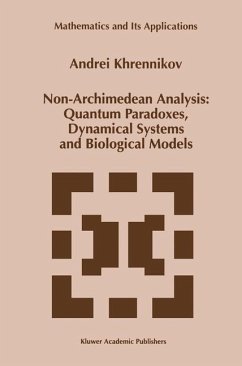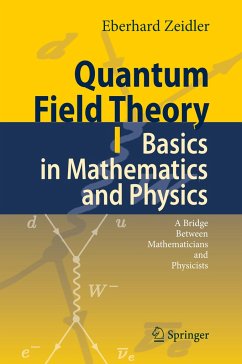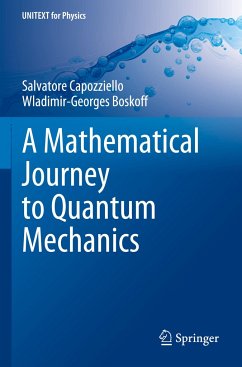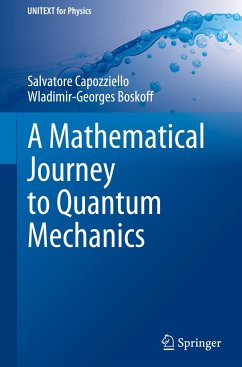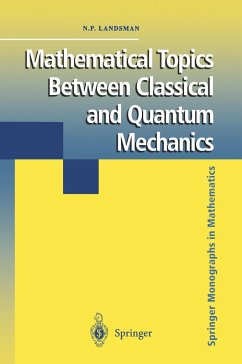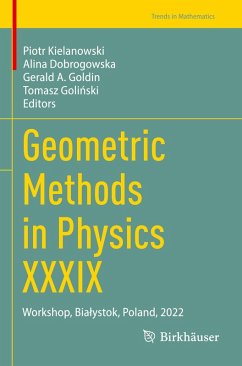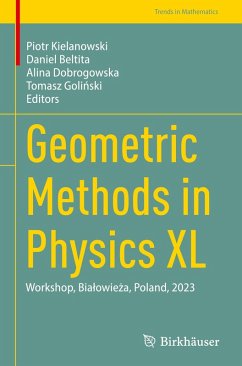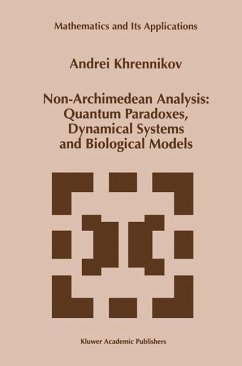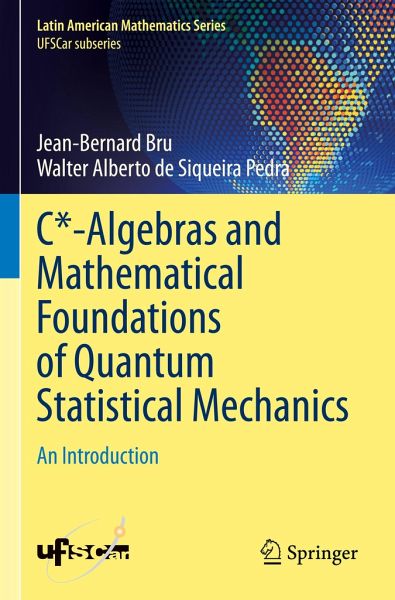
C*-Algebras and Mathematical Foundations of Quantum Statistical Mechanics
An Introduction
Versandkostenfrei!
Versandfertig in 6-10 Tagen
46,99 €
inkl. MwSt.
Weitere Ausgaben:

PAYBACK Punkte
23 °P sammeln!
This textbook provides a comprehensive introduction to the mathematical foundations of quantum statistical physics. It presents a conceptually profound yet technically accessible path to the C_-algebraic approach to quantum statistical mechanics, demonstrating how key aspects of thermodynamic equilibrium can be derived as simple corollaries of classical results in convex analysis.Using C_-algebras as examples of ordered vector spaces, this book makes various aspects of C_-algebras and their applications to the mathematical foundations of quantum theory much clearer from both mathematical and p...
This textbook provides a comprehensive introduction to the mathematical foundations of quantum statistical physics. It presents a conceptually profound yet technically accessible path to the C_-algebraic approach to quantum statistical mechanics, demonstrating how key aspects of thermodynamic equilibrium can be derived as simple corollaries of classical results in convex analysis.
Using C_-algebras as examples of ordered vector spaces, this book makes various aspects of C_-algebras and their applications to the mathematical foundations of quantum theory much clearer from both mathematical and physical perspectives. It begins with the simple case of Gibbs states on matrix algebras and gradually progresses to a more general setting that considers the thermodynamic equilibrium of infinitely extended quantum systems. The book also illustrates how first-order phase transitions and spontaneous symmetry breaking can occur, in contrast to the finite-dimensional situation. One of the unique features of this book is its thorough and clear treatment of the theory of equilibrium states of quantum mean-field models.
This work is self-contained and requires only a modest background in analysis, topology, and functional analysis from the reader. It is suitable for both mathematicians and physicists with a specific interest in quantum statistical physics.
Using C_-algebras as examples of ordered vector spaces, this book makes various aspects of C_-algebras and their applications to the mathematical foundations of quantum theory much clearer from both mathematical and physical perspectives. It begins with the simple case of Gibbs states on matrix algebras and gradually progresses to a more general setting that considers the thermodynamic equilibrium of infinitely extended quantum systems. The book also illustrates how first-order phase transitions and spontaneous symmetry breaking can occur, in contrast to the finite-dimensional situation. One of the unique features of this book is its thorough and clear treatment of the theory of equilibrium states of quantum mean-field models.
This work is self-contained and requires only a modest background in analysis, topology, and functional analysis from the reader. It is suitable for both mathematicians and physicists with a specific interest in quantum statistical physics.



